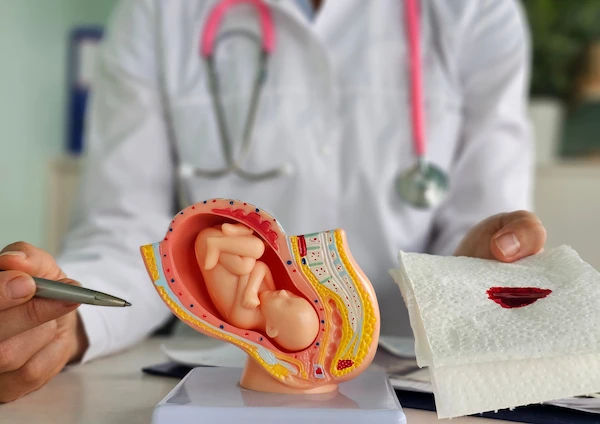Painkillers Safe for Use in Pregnancy
Find out which painkillers are safe during pregnancy and which to avoid. Learn expert-backed tips for managing pain, including natural remedies and when to seek medical advice.


Pregnancy is a beautiful yet challenging journey, and dealing with pain during this time can be stressful. Whether it’s a headache, backache, or muscle pain, you want relief, but you also want to ensure your baby’s safety. Not all painkillers are safe during pregnancy, so knowing which ones you can take is crucial.
In this article, we’ll discuss:
- Common types of pain during pregnancy
- Safe pain relief options
- Medications to avoid
- Natural ways to manage pain
- When to consult a doctor
Common Types of Pain During Pregnancy
Pregnancy brings many changes to your body, which can lead to discomfort. Some common pains include:
- Headaches: Hormonal changes, stress, or dehydration can trigger them.
- Back pain: Your growing belly shifts your centre of gravity, straining your back.
- Pelvic pain: As your ligaments stretch, you may feel aches in your hips and pelvis.
- Leg cramps: Often caused by pressure on nerves and blood vessels.
While some discomfort is normal, persistent or severe pain should be checked by a doctor.
Safe Painkillers During Pregnancy
Not all pain medications are safe for pregnant women. Here are the ones generally considered safe when used short-term and in recommended doses:
1. Acetaminophen (Paracetamol)
- Safest option for mild to moderate pain.
- Helps with headaches, fever, and muscle aches.
- Dosage: Follow your doctor’s advice, usually 500–1000 mg per dose, not exceeding 4000 mg in 24 hours.
2. Low-Dose Aspirin (Only If Prescribed)
- Sometimes recommended for certain conditions (like preeclampsia).
- Never take without a doctor’s approval, as high doses can harm the baby.
3. Topical Pain Relievers (With Caution)
- Some muscle creams (like those with menthol) may be safe in small amounts.
- Avoid products with methyl salicylate (found in some pain-relief gels).
Consult Top Specialists
Painkillers to Avoid During Pregnancy
Some medications can harm your baby’s development or cause complications. Avoid:
1. NSAIDs (Non-Steroidal Anti-Inflammatory Drugs)
- Ibuprofen (Advil, Brufen), Naproxen, Diclofenac: These can affect the baby’s heart, kidneys, and blood flow, especially in the third trimester.
- Aspirin (in high doses): Increases the risk of bleeding and birth defects.
2. Opioids (Codeine, Tramadol, Morphine)
- Only prescribed in extreme cases under strict medical supervision.
- Can cause withdrawal symptoms in newborns if used long-term.
3. Herbal or Unregulated Supplements
- Some herbal remedies (like feverfew or willow bark) may not be safe.
- Always check with your doctor before trying any natural supplements.
Natural Ways to Manage Pain in Pregnancy
Before reaching for medication, try these safe, drug-free methods:
1. Warm Compress or Heating Pad (Low Heat)
- Helps with back pain and muscle stiffness.
- Avoid very hot temperatures, especially on the abdomen.
2. Gentle Exercise & Stretching
- Prenatal yoga, walking, and swimming can ease discomfort.
- Strengthens muscles and improves circulation.
3. Massage & Chiropractic Care
- A prenatal massage can relieve tension.
- A chiropractor trained in pregnancy care can help with back pain.
4. Proper Posture & Support
- Use a pregnancy pillow for better sleep.
- Wear supportive shoes and avoid standing for long periods.
5. Hydration & Balanced Diet
- Dehydration can cause headaches and cramps—drink plenty of water.
- Eat magnesium-rich foods (bananas, nuts, leafy greens) to prevent leg cramps.
When to See a Doctor
While occasional pain is normal, consult your doctor if you experience:
- Severe or persistent headaches (could indicate high blood pressure).
- Sharp abdominal pain (may signal complications).
- Swelling, dizziness, or vision changes (possible signs of preeclampsia).
- Pain with fever or unusual discharge (could indicate infection).
Your doctor can recommend the safest treatment based on your trimester and health condition.
Conclusion
Pregnancy pain can be managed safely with the right approach. Acetaminophen (paracetamol) is usually the safest choice, but always check with your doctor before taking any medication. Natural remedies like gentle exercise, warm compresses, and proper hydration can also help.
If you’re unsure about which painkiller to take or need personalised advice, consult an Apollo24|7 specialist for expert guidance. You can easily book an online consultation or schedule a test through the Apollo24|7 app.
Consult Top Specialists
Consult Top Specialists

Dr Syed Mateen Pasha
General Physician
2 Years • MBBS
Bengaluru
PRESTIGE SHANTHINIKETAN - SOCIETY CLINIC, Bengaluru

Dr. Anand Ravi
General Physician
2 Years • MBBS
Bengaluru
PRESTIGE SHANTHINIKETAN - SOCIETY CLINIC, Bengaluru

Dr. Bhukya Pavan Kalyan
General Physician
5 Years • MBBS DNB Paediatrics
Bengaluru
PRESTIGE SHANTHINIKETAN - SOCIETY CLINIC, Bengaluru

Dr. Shubham Chauhan
General Practitioner
4 Years • MBBS
Lucknow
Apollo 24|7 Clinic - Uttar Pradesh, Lucknow

Dr. Syed Ismail Ali
General Practitioner
7 Years • MBBS
Hyderabad
Apollo 24|7 Clinic, Hyderabad
Consult Top Specialists

Dr Syed Mateen Pasha
General Physician
2 Years • MBBS
Bengaluru
PRESTIGE SHANTHINIKETAN - SOCIETY CLINIC, Bengaluru

Dr. Anand Ravi
General Physician
2 Years • MBBS
Bengaluru
PRESTIGE SHANTHINIKETAN - SOCIETY CLINIC, Bengaluru

Dr. Bhukya Pavan Kalyan
General Physician
5 Years • MBBS DNB Paediatrics
Bengaluru
PRESTIGE SHANTHINIKETAN - SOCIETY CLINIC, Bengaluru

Dr. Shubham Chauhan
General Practitioner
4 Years • MBBS
Lucknow
Apollo 24|7 Clinic - Uttar Pradesh, Lucknow

Dr. Syed Ismail Ali
General Practitioner
7 Years • MBBS
Hyderabad
Apollo 24|7 Clinic, Hyderabad




